KEY TAKEAWAYS
- Blockchain gaming offers decentralization, security, ownership, control, and transparency, revolutionizing the gaming industry.
- Popular blockchain gaming platforms include Enjin, Next, and Launchpad, offering benefits such as secure ownership, easy integration, and access to active gaming communities.
- Blockchain games like The Sandbox, Ember Sword, and Neon District demonstrate the potential of blockchain technology for creating immersive and player-driven gaming experiences.
Introduction to Blockchain Gaming
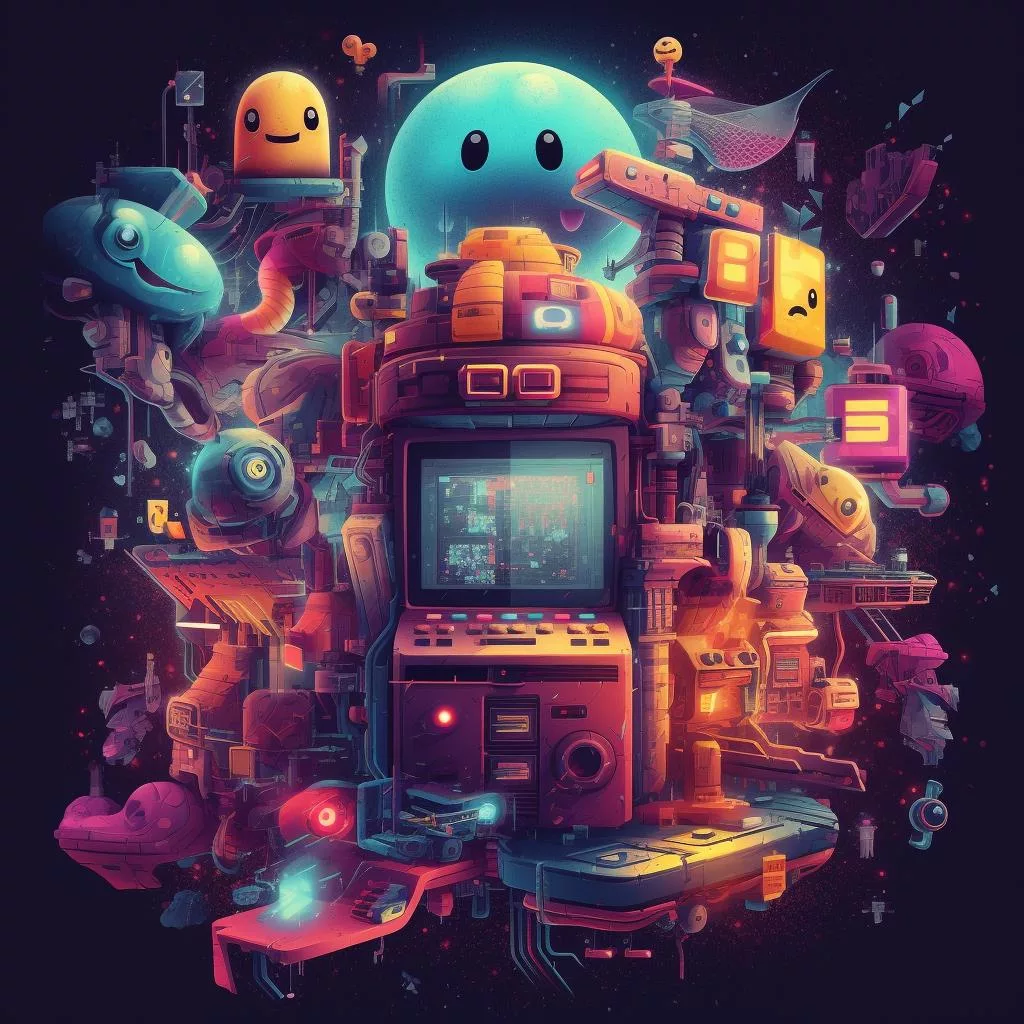
Blockchain gaming is a revolutionary concept that has the potential to transform the gaming industry. By leveraging blockchain technology, these games offer unique benefits such as decentralization, security, ownership and control of in-game assets, and transparency. Traditional gaming platforms rely on centralized servers, which create vulnerabilities and limit player ownership.
In contrast, blockchain gaming stores game data on a distributed network of nodes, ensuring security and eliminating single points of failure. Furthermore, blockchain technology provides players with true ownership and control over their in-game assets, which can be transferred or sold on marketplaces. Additionally, transparent transactions recorded on the blockchain foster fairness and deter cheating.
As blockchain technology continues to evolve, the future of blockchain gaming holds promising prospects for innovative and exciting gaming experiences.
Benefits of Blockchain Gaming
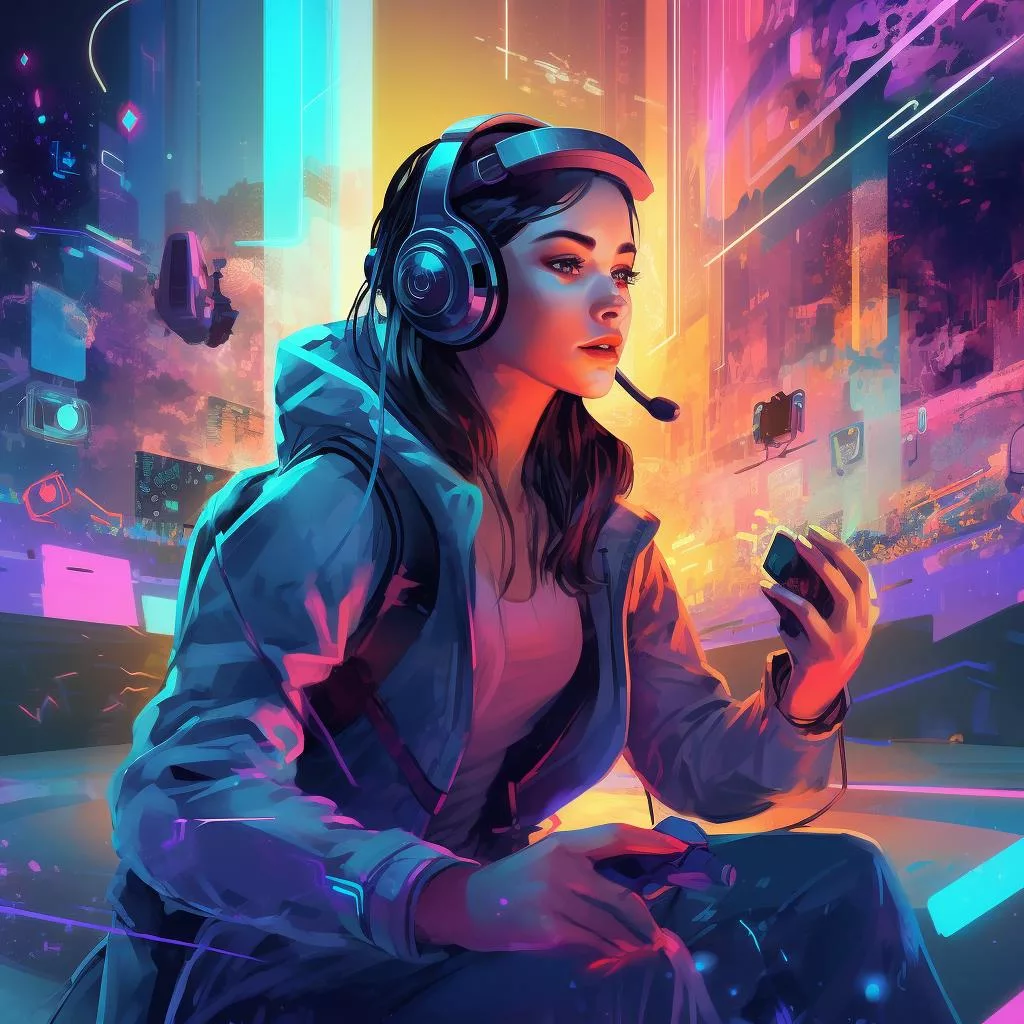
Blockchain gaming is a revolutionary concept that has the potential to transform the gaming industry. In this section, we will explore the benefits of blockchain gaming and how it is changing the way we play games.
Decentralization of Blockchain Gaming
One of the most significant benefits of blockchain gaming is its decentralization. Traditional gaming platforms are centralized, meaning that the game data is stored on a central server. This creates a single point of failure, making the data vulnerable to hacking and other security breaches. In contrast, blockchain gaming is decentralized, meaning that the game data is stored on a distributed network of nodes.
This decentralization ensures that the game data is secure and cannot be tampered with by any single entity. It also makes the games more transparent, as all transactions are recorded on the blockchain and can be easily audited.
Security in Blockchain Gaming
Another benefit of blockchain gaming is security. Blockchain technology uses advanced cryptographic algorithms to secure data, making it virtually impossible to hack. This is because each transaction is verified by a network of nodes, making it incredibly difficult to tamper with the data.
This level of security is critical in gaming, where players often invest significant amounts of time and money in their games. Blockchain technology ensures that their investments are safe and secure, giving them peace of mind.
Ownership and Control through Blockchain Gaming
Blockchain gaming also gives players ownership and control over their in-game assets. In traditional gaming, players do not own their in-game assets, as they are stored on a central server. This means that if the server goes down or the game is shut down, players lose their assets.
In contrast, blockchain gaming allows players to own their in-game assets, as they are stored on the blockchain. This means that they have full control over their assets and can transfer them to other players or sell them on a marketplace.
Transparency in Blockchain Gaming
Finally, blockchain gaming is transparent. All transactions are recorded on the blockchain, making it easy to audit the game data. This transparency is critical in online gaming, where cheating and fraud are common.
Blockchain technology ensures that all transactions are fair and transparent, creating a level playing field for all players. It also makes it easier for game developers to detect cheating and take appropriate action.
In conclusion, blockchain gaming is a revolutionary concept that is changing the way we play games. Its benefits include decentralization, security, ownership, and control, and transparency. As blockchain technology continues to evolve, we can expect to see more innovative and exciting blockchain games in the future.
Popular Blockchain Gaming Platforms
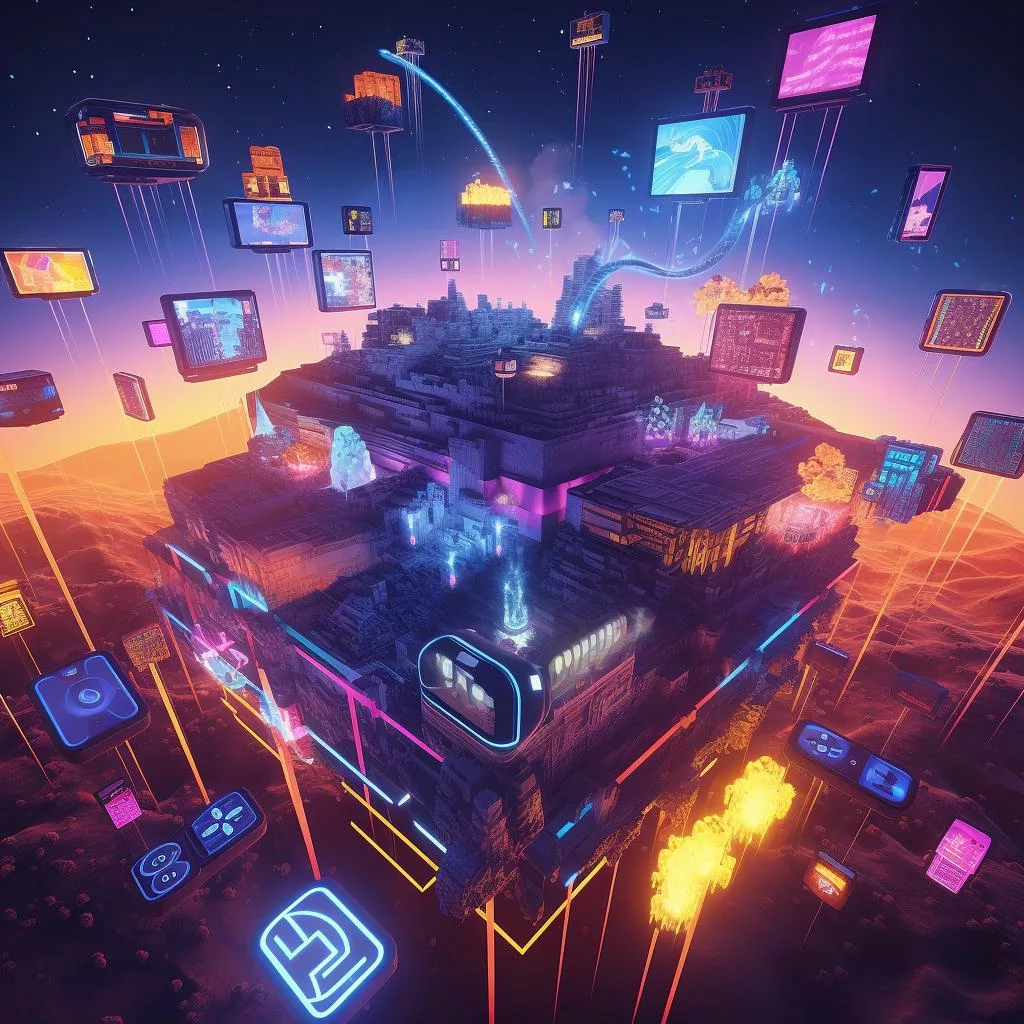
Blockchain technology has been making waves in various industries, and the gaming industry is no exception. In recent years, blockchain gaming has emerged as a new genre of gaming that seeks to leverage the unique capabilities of blockchain technology to create new and exciting gaming experiences. Blockchain gaming platforms enable developers to create games that are transparent, secure, and offer a unique level of ownership and control to players.
In this section, we’ll explore some of the most popular blockchain gaming platforms and their benefits.
Enjin
Overview of Enjin
Enjin is a leading blockchain gaming platform that offers a suite of tools and services to game developers. The platform is built on the Ethereum blockchain and enables developers to create games that use non-fungible tokens (NFTs) to represent in-game items and assets. Enjin also offers a marketplace for buying, selling, and trading NFTs, which gives players a new level of ownership and control over their in-game assets.
Benefits of Using Enjin
Enjin offers several benefits to game developers, including:
- Secure and transparent ownership of in-game assets: By using NFTs to represent in-game items, Enjin ensures that players have full ownership and control over their assets. This means that players can buy, sell, and trade their assets without any restrictions.
- Easy integration with existing game engines: Enjin offers a suite of tools and plugins that enable game developers to integrate blockchain technology into their existing game engines. This makes it easy for developers to add blockchain functionality to their games without having to start from scratch.
- Access to a large community of gamers: Enjin has a large and active community of gamers and developers who are passionate about blockchain gaming. This community can provide valuable feedback and support to developers who are building games on the platform.
Examples of Enjin-Powered Games
- Age of Rust: A puzzle-adventure game that uses NFTs to represent in-game items and assets.
- AlterVerse: A sandbox-style game that allows players to create and customize their own virtual worlds.
- 9Lives Arena: A PvP combat game that uses NFTs to represent weapons and other in-game items.
Next
Overview of Next
Next is a blockchain gaming platform that is built on the EOS blockchain. The platform enables developers to create games that offer true ownership and control over in-game assets, as well as a new level of transparency and security.
Benefits of Using Next
Next offers several benefits to game developers, including:
- High speed and scalability: The EOS blockchain is designed to be fast and scalable, which makes it well-suited for gaming applications that require high transaction speeds and low latency.
- Easy integration with existing game engines: Next offers a suite of tools and plugins that enable game developers to integrate blockchain technology into their existing game engines. This makes it easy for developers to add blockchain functionality to their games without having to start from scratch.
- Access to a large community of gamers: Next has a large and active community of gamers and developers who are passionate about blockchain gaming. This community can provide valuable feedback and support to developers who are building games on the platform.
Examples of Next-Powered Games
- EOS Knights: A mobile RPG game that uses NFTs to represent in-game items and assets.
- Crypto Sword and Magic: A multiplayer RPG game that uses NFTs to represent weapons and other in-game items.
- ChainClash: A PvP strategy game that uses NFTs to represent characters and other in-game assets.
Launchpad
Overview of Launchpad
Launchpad is a blockchain gaming platform that enables developers to create games that use the TRON blockchain. The platform offers a suite of tools and services that enable developers to create games that offer true ownership and control over in-game assets.
Benefits of Using Launchpad
Launchpad offers several benefits to game developers, including:
- High speed and scalability: The TRON blockchain is designed to be fast and scalable, which makes it well-suited for gaming applications that require high transaction speeds and low latency.
- Easy integration with existing game engines: Launchpad offers a suite of tools and plugins that enable game developers to integrate blockchain technology into their existing game engines. This makes it easy for developers to add blockchain functionality to their games without having to start from scratch.
- Access to a large community of gamers: Launchpad has a large and active community of gamers and developers who are passionate about blockchain gaming. This community can provide valuable feedback and support to developers who are building games on the platform.
Examples of Launchpad-Powered Games
- TronGoo: A strategy game that uses NFTs to represent in-game assets.
- HyperSnakes: A multiplayer game that uses NFTs to represent in-game items.
- BitGuild: A massive multiplayer game that uses NFTs to represent assets and in-game items.
Blockchain gaming platforms are changing the way developers create and players experience games. By leveraging the unique benefits of blockchain technology, these platforms enable developers to create games that offer true ownership and control over in-game assets, as well as a new level of transparency and security. Enjin, Next, and Launchpad are just a few examples of the many blockchain gaming platforms that are available today. As the blockchain gaming industry continues to grow and evolve, we can expect to see even more exciting developments in the years to come.
Examples of Blockchain Games
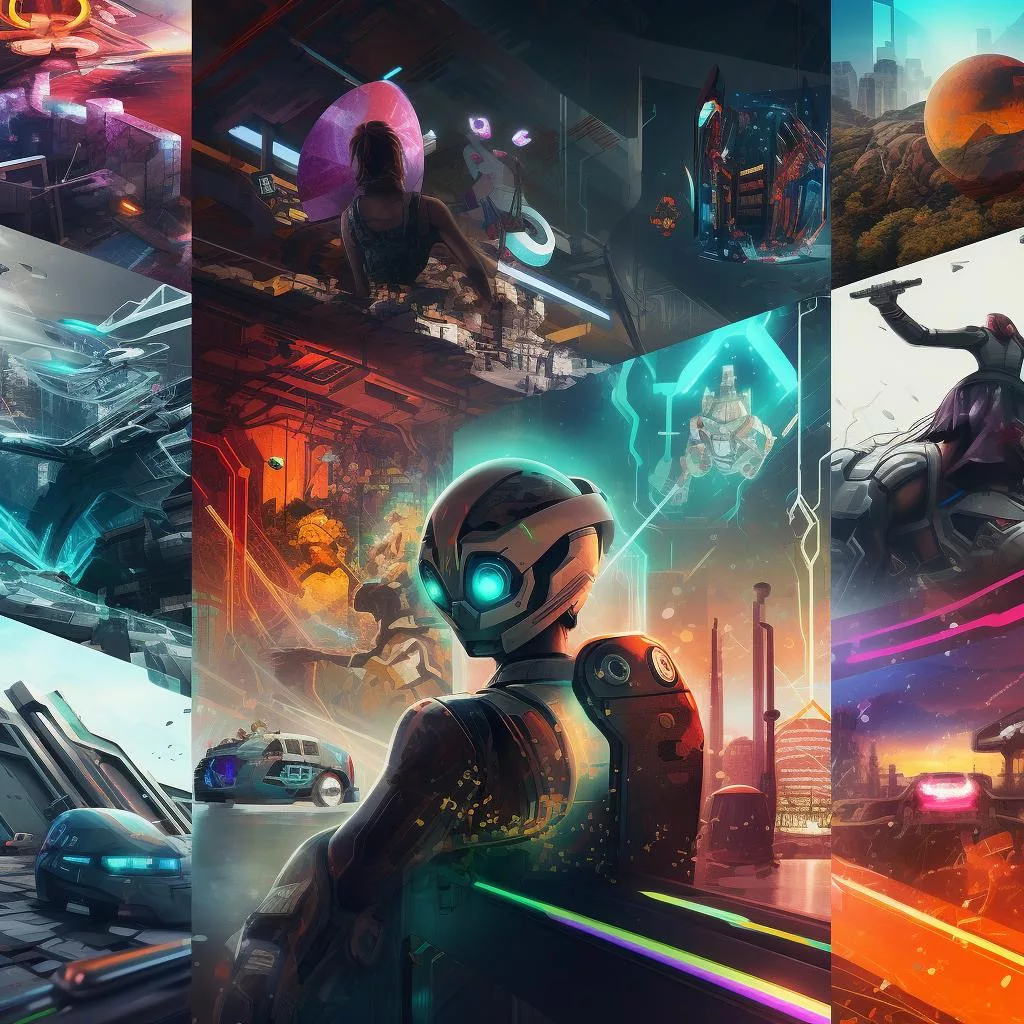
Blockchain technology has been revolutionizing various industries, and gaming is no exception. Blockchain gaming is a new trend that is quickly gaining traction among gamers and developers alike. With blockchain technology, gamers can enjoy a more transparent, secure, and decentralized gaming experience.
In this section, we’ll take a closer look at blockchain gaming and explore some examples of blockchain games.
The Sandbox
Overview of The Sandbox
The Sandbox is a blockchain-based virtual world that allows players to create, share, and monetize their gaming experiences. The game is powered by the Ethereum blockchain and features non-fungible tokens (NFTs) that represent in-game assets. The Sandbox was developed by Animoca Brands, a leading blockchain game developer.
How The Sandbox Uses Blockchain Technology
The Sandbox uses blockchain technology to create a decentralized marketplace where players can buy, sell, and trade in-game assets. The game’s NFTs are unique and cannot be replicated or duplicated, which makes them highly valuable. The Sandbox also uses blockchain technology to ensure that players own their in-game assets and can transfer them to other players or even to other games.
Gameplay and Features
In The Sandbox, players can create their virtual worlds using the game’s voxel editor. These worlds can then be shared with other players or even sold on the game’s marketplace. Players can also earn SAND, the game’s native cryptocurrency, by participating in various activities such as creating and sharing content, playing games, and more. The Sandbox also features a gaming ecosystem where developers can create games and experiences using the game’s assets.
Ember Sword
Overview of Ember Sword
Ember Sword is an upcoming blockchain-based massively multiplayer online role-playing game (MMORPG) developed by Bright Star Studios. The game is set in a fantasy world and features a player-driven economy where players can trade in-game items using blockchain technology.
How Ember Sword Uses Blockchain Technology
Ember Sword uses blockchain technology to create a decentralized marketplace where players can trade in-game items. The game’s items are represented by NFTs, which means that players own their items and can transfer them to other players or even to other games. The game also features a blockchain-based governance system that allows players to vote on game updates and changes.
Gameplay and Features
In Ember Sword, players can explore a vast fantasy world, complete quests, and battle monsters. The game also features a player-driven economy where players can trade in-game items using blockchain technology. Players can also earn EMBR, the game’s native cryptocurrency, by participating in various activities such as completing quests, crafting items, and more.
Neon District: Season One
Overview of Neon District: Season One
Neon District: Season One is a blockchain-based role-playing game developed by Blockade Games. The game is set in a dystopian future and features a unique storyline and characters.
How Neon District: Season One Uses Blockchain Technology
Neon District: Season One uses blockchain technology to create a decentralized marketplace where players can trade in-game items. The game’s items are represented by NFTs, which means that players own their items and can transfer them to other players or even to other games. The game also features a blockchain-based governance system that allows players to vote on game updates and changes.
Gameplay and Features
In Neon District: Season One, players can explore a dystopian world, complete missions, and collect in-game items. The game also features a player-driven economy where players can trade in-game items using blockchain technology. Players can also earn NDC, the game’s native cryptocurrency, by participating in various activities such as completing missions, trading items, and more.
Recap of Blockchain Games
Overall, blockchain gaming is an innovative approach that is changing the gaming industry. With blockchain technology, gamers can enjoy a more transparent, secure, and decentralized gaming experience. The examples of blockchain games mentioned above are just a few of the many games that are using blockchain technology to create new and exciting gaming experiences. As blockchain technology continues to evolve, we can expect to see more innovative games that leverage its unique capabilities.
Future of Blockchain Gaming

Blockchain gaming is an emerging industry that is gaining traction among gamers and developers alike. The technology behind blockchain enables gamers to own and trade in-game assets, as well as participate in decentralized gaming ecosystems. As the industry continues to grow, it is expected to expand into new areas and integrate with traditional gaming platforms. In this section, we will explore the future of blockchain gaming, including its potential for expansion, integration with traditional gaming, and the creation of new types of games.
Expansion of Blockchain Gaming
Blockchain gaming has the potential to revolutionize the gaming industry by providing gamers with a new level of ownership and control over their in-game assets. Blockchain technology enables gamers to truly own their in-game items, which means they can sell them or trade them as they see fit. This is a significant departure from traditional gaming, where in-game items are owned by the game developer and cannot be traded or sold.
As blockchain gaming gains popularity, we can expect to see a significant expansion in the number of games utilizing this technology. Developers are already creating new blockchain-based games, and established game developers are beginning to explore the potential of blockchain gaming. In addition, blockchain gaming is not limited to a specific genre or platform. It can be applied to games of all types, including MMOs, RPGs, and even mobile games.
One of the key advantages of blockchain gaming is its ability to create decentralized gaming ecosystems. This means that gamers can participate in games without the need for a centralized authority to manage the game. This opens up new possibilities for gaming, including the ability to create truly player-driven games where the community determines the direction of the game.
Integration with Traditional Gaming
While blockchain gaming is still in its early stages, it is already beginning to integrate with traditional gaming platforms. For example, the popular game Fortnite has already experimented with blockchain technology by partnering with blockchain startup Immutable to create in-game items that can be traded on the blockchain.
In addition, major gaming companies like Ubisoft and Square Enix have expressed interest in blockchain gaming and are exploring ways to integrate blockchain technology into their games. This integration could lead to a new era of gaming where blockchain and traditional gaming coexist.
Potential for New Types of Games
One of the most exciting aspects of blockchain gaming is the potential for new types of games to emerge. Blockchain technology enables developers to create games that are truly decentralized and player-driven. This means that gamers can participate in games where they have more control over the direction of the game and can even earn cryptocurrency for their participation.
For example, blockchain gaming could enable the creation of games where players earn cryptocurrency for completing in-game tasks or contributing to the game in some way. This could lead to the creation of a new type of gaming economy where players can earn real money for their gaming efforts.
Conclusion of the Future of Blockchain Gaming
In conclusion, the future of blockchain gaming is bright. As the industry continues to grow, we can expect to see more games utilizing blockchain technology, as well as integration with traditional gaming platforms. In addition, the potential for new types of games to emerge is exciting, as blockchain technology enables developers to create truly decentralized and player-driven games. The possibilities are endless, and we are only beginning to scratch the surface of what blockchain gaming can offer.
Conclusion of Blockchain Gaming
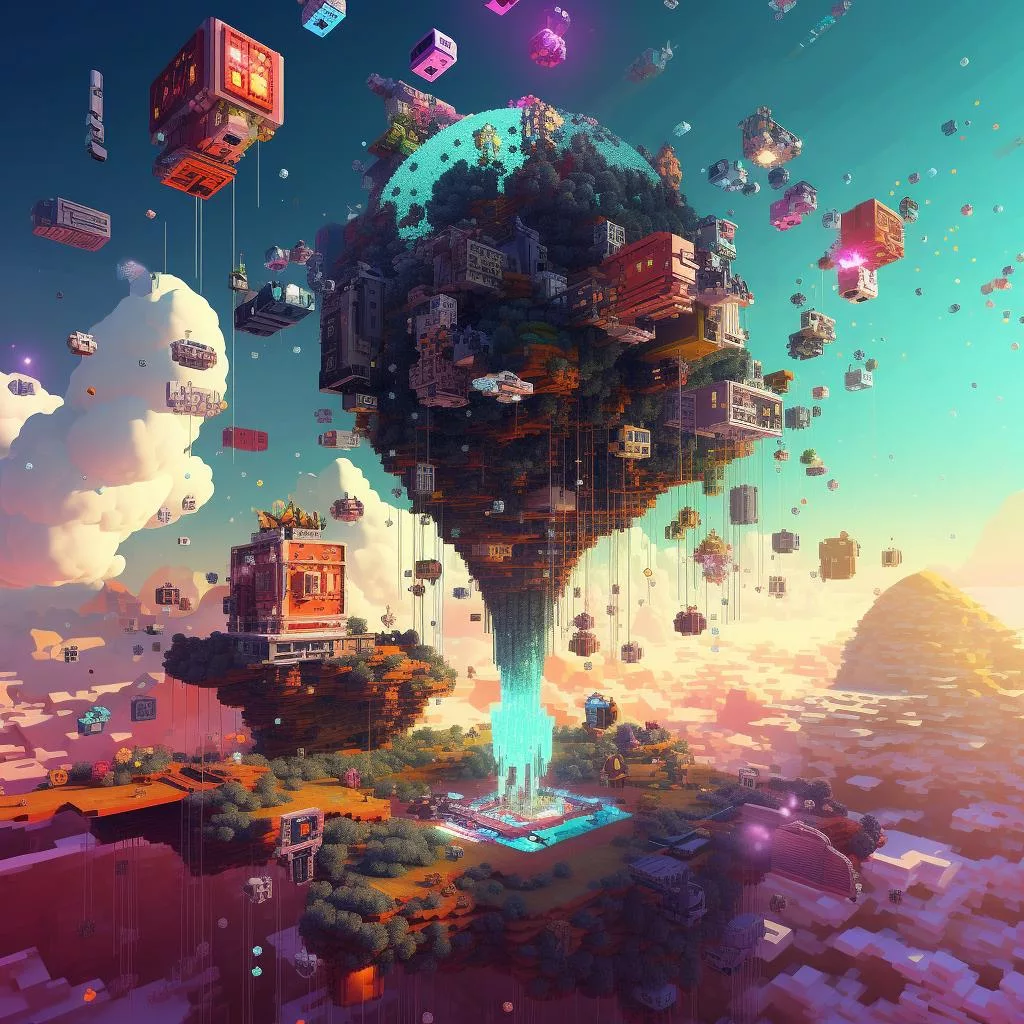
Blockchain gaming has brought forth a new era of gaming, providing players and developers with numerous advantages. The benefits of decentralization, security, ownership and control, and transparency have transformed the way games are played and experienced.
By utilizing blockchain technology, gamers now have true ownership over their in-game assets, and transactions are secure and tamper-proof. Blockchain gaming platforms such as Enjin, Next, and Launchpad have gained popularity and continue to evolve, offering developers tools and services to create immersive gaming experiences. As the blockchain gaming industry expands, it is expected to integrate with traditional gaming platforms and open up new possibilities for player-driven games.
With the potential for new types of games and the continuous advancement of blockchain technology, the future of blockchain gaming holds immense potential for innovation and growth.